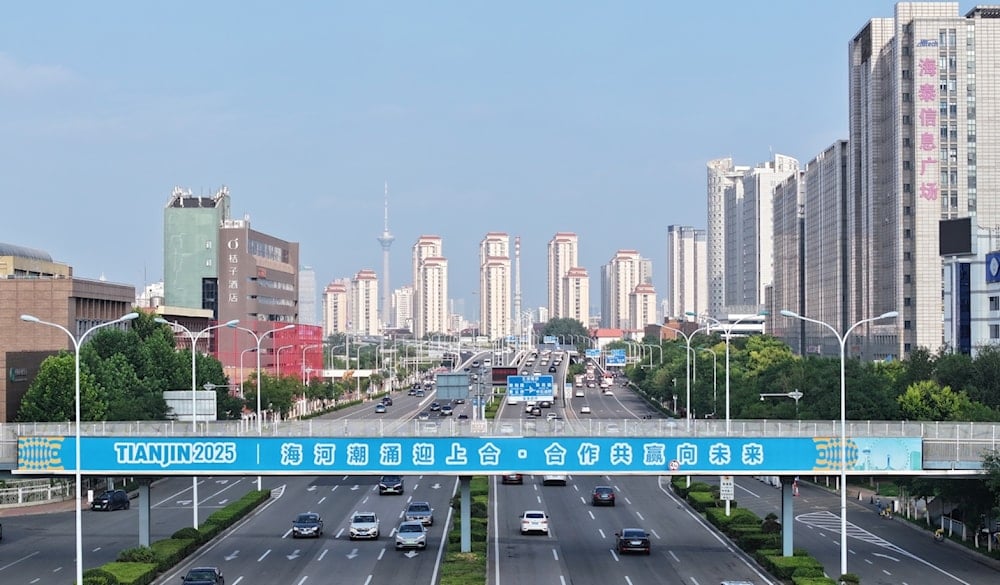Xi to host landmark SCO summit with Putin, Modi in attendance
Chinese President Xi Jinping will host the largest-ever Shanghai Cooperation Organisation summit in Tianjin, bringing together over 20 leaders, including Vladimir Putin and Narendra Modi to project Global South solidarity.
-

Leaders from more than 20 countries and heads of 10 international organizations will attend the Shanghai Cooperation Organization (SCO) Summit 2025, which will be held in Tianjin from August 31 to September 1. (Xinhua)
Chinese President Xi Jinping will convene more than 20 world leaders in the northern port city of Tianjin next week for a Shanghai Cooperation Organisation (SCO) summit that Beijing says will reaffirm Global South solidarity and provide a diplomatic boost to sanctions-hit Russia. The gathering, scheduled for August 31 to September 1, is expected to be the bloc's largest since its creation in 2001.
Among the attendees are Russian President Vladimir Putin and Indian Prime Minister Narendra Modi, the latter making his first trip to China in over seven years. Modi's visit comes amid efforts to ease tensions between New Delhi and Beijing following the deadly border clashes of 2020. The last time Modi shared a platform with both Xi and Putin was at the 2024 BRICS summit in Kazan, Russia. Russian officials in New Delhi recently indicated that Moscow is hoping for trilateral talks with China and India in the near future.
"Xi will want to use the summit as an opportunity to showcase what a post-American-led international order begins to look like and that all White House efforts since January to counter China, Iran, Russia, and now India have not had the intended effect," Eric Olander, editor-in-chief of The China-Global South Project, told Reuters."Just look at how much BRICS has rattled (US President) Donald Trump, which is precisely what these groups are designed to do."
SCO Optics
China's Foreign Ministry has described the SCO as "an important force in building a new type of international relations." Initially focused on security and counterterrorism, the bloc has grown to 10 permanent members and 16 dialogue and observer states, expanding into areas of economic and military cooperation.
Still, analysts caution that while expansion will be discussed, the group's concrete achievements remain limited. "What is the precise vision that the SCO represents and its practical implementation are rather fuzzy. It is a platform that has increasing convening power, which helps in narrative projection," Manoj Kewalramani, chair of the Indo-Pacific Research Programme at the Takshashila Institution in Bangalore, told Reuters. "But the SCO's effectiveness in addressing substantial security issues remains very limited."
Fragile Unity
Deep divisions among members persist. In June, SCO defense ministers failed to adopt a joint statement after India objected to language omitting the April 22 attack on Hindu tourists in Kashmir, which triggered the worst India-Pakistan fighting in decades. New Delhi also refused to sign on to a condemnation of Israeli strikes against Iran earlier that month.
Even so, analysts expect a pragmatic approach this year as Modi seeks to maintain momentum in the détente with China, especially under renewed tariff pressure from Washington. "It's likely (New Delhi) will swallow their pride and put this year's SCO problems behind them in a bid to maintain momentum in the détente with China, which is a key Modi priority right now," Olander explained.
Read more: Modi to visit China for first time since 2018 to attend SCO summit
While no sweeping agreements are expected, experts suggest incremental measures, such as troop withdrawals, relaxation of trade and visa restrictions, and cooperation in climate and people-to-people exchanges, could be announced.
After the summit, Modi is set to return to India, while Putin will remain in China to participate in a World War II military parade in Beijing, extending his stay abroad in a rare move for the Russian leader.

 4 Min Read
4 Min Read








